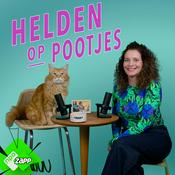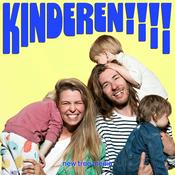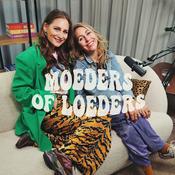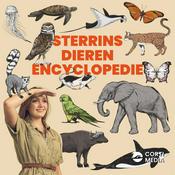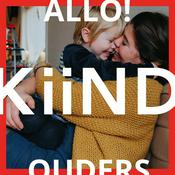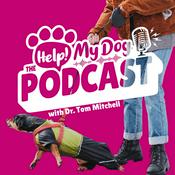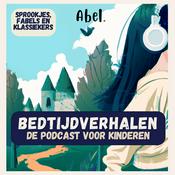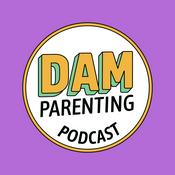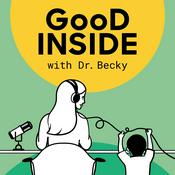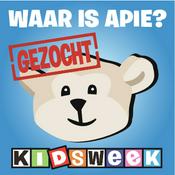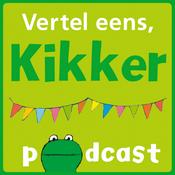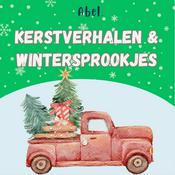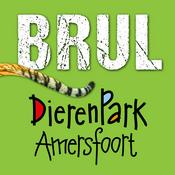107 afleveringen

15. When is the right time to get a new puppy
14-10-2025 | 11 Min.
Welcome to Parenting Kids and Dogs 101, a limited series podcast for parents who live with kids and dogs, or plan to. Don't forget to grab the accompanying workbook at https://poochparenting.net/podcastworkbook/When is the right time to get a puppy?Make an honest assessment of your schedule and life. Here are some questions you should consider.It's often difficult to raise a puppy alongside a baby or toddler. This is not an ideal time to get a puppy for some families, especially if you are uncomfortable with extra chaos and unpredictability.If you are considering adding a puppy to your family, I'd encourage you to wait until your children are at least 5 or 6 years old. They are able to follow your guidance at this age and can have safe, positive interactions with a dog with your support and with lots of management.Should you get a puppy or an adult dog?Are you tolerant of sleep interruptions? If not, consider an adult dog who has the physical maturity to hold their bladder overnight and the emotional maturity to sleep through the night after they get used to their new home.Have you had a traumatic incident with a former dog that has left you feeling nervous about what your new dog will be like? If so, it might be helpful to foster-to-adopt a young adult dog (age 2 or older) so you can see what that dog is like.At social maturity, you will have a better idea of who the dog IS and who they WILL BE. After this developmental benchmark (potential traumatic events aside), you may be more likely to know if your dog is social with other dogs, if they like kids, if they are friendly when visitors come to the house, or if they are shy and nervous around normal household activities.If you really want a puppy... Is it possible to meet the parents so that you can see what the pups' temperament and size might be like?Have you met the breeder in person and seen their other dogs? Do you like them? Do they like your kids? Has the breeder done health testing to ensure that your dog is less likely to have skeletal, heart, breathing or eye issues? If your potential pup is from a rescue, do they have any background information on the parents? Are they willing to take the dog back if it's unsafe around your kids in the future?Are you willing to use management equipment in your home (even if it doesn't go with your home decor) and invest in training to prevent problems between your kids and puppies?For more information and the rest of the show notes, please visit https://poochparenting.net/episode-15-when-is-the-right-time-to-get-a-puppy/Thank you for listening! Want to learn more about Pooch Parenting and how we can help you? If you enjoyed this episode, please rate and review on Apple Podcasts. Worried about Growling? Get my free guide: ABC's of Growling: https://poochparenting.net/abcs-of-growling/

14. How to Choose a Family Dog
30-9-2025 | 13 Min.
Overview - How to Choose a Dog Focus on the individual dog more than a specific breedPick a friendly, confident dog who approaches your kids happily. Listen to my Pooch Parenting Podcast episode about how to pick a shelter dog for families with kids.See if you can foster-to-adopt or do a trial adoption. This option allows you to live with a dog for a few weeks to see if you are a good fit.Be aware that some shelters and rescue organizations do not adopt to families with children of any age. Some adopt to families with kids within a certain age range. How to Choose a Dog that's a Good Fit For Your FamilyKnow what you can afford. Here are some of the costs associated with having a dog: the adoption or purchase priceveterinary carequality food, treats, chews and toysgrooming costs (some breeds need to be groomed every 4-6 weeks)Be honest about your lifestyle. Are you active, preferring to go hiking or backpacking? Or are you more of a game night family, preferring to stay home and play board games? Your companion dog should match the lifestyle you currently live (not the lifestyle you wish you had!)Is your family calm or bustling, with a constant flow of houseguests or visitors? Are you the home that hosts the PTA parties and scout troop meetings? Your dog's personality should be compatible with the level of activity in your home. Shy or nervous dogs prefer to live in a quieter and more stable home. It would be their worst nightmare to have to attend your kids' weekly soccer games or other sports matches. Dog Breeds well suited to family lifeI know I said earlier that you should focus more on the individual dog than the breed, in particular, that was only partially true.Breeds tend to have behavioral traits that can be fairly predictable due to their long history of being bred for specific characteristics.But it's crucial to note that there is individual variation within every breed, just as there are personality differences between siblings in any family. Some may be more "introverted" while others want to enthusiastically greet every creature they meet.If you want to pick a pure bred dog, choose one who was bred to be sociable with people. The "gun dog" group is a good example of dogs who were bred to work alongside people. This group includes retrievers, labradors, spaniels, setters and more. Gun dogs tend to be enthusiastic team players, but they can be hard to live with because of their long youth before maturation and their high levels of energy. Many people love their friendly nature but are unprepared for their high energy levels.Other breeds that tend to be good with families include the cavalier King Charles spaniel, beagle, basset, havanese, boxer and Bernese mountain dog. Note: do not buy a puppy from a website without vetting them. Ideally, you will visit the breeder and meet the pThank you for listening! Want to learn more about Pooch Parenting and how we can help you? If you enjoyed this episode, please rate and review on Apple Podcasts. Worried about Growling? Get my free guide: ABC's of Growling: https://poochparenting.net/abcs-of-growling/

13. How to Handle Dog Jealousy
16-9-2025 | 8 Min.
Welcome to Parenting Kids and Dogs 101, a limited series podcast for parents who live with kids and dogs, or plan to. I'm your host, Michelle Stern, the founder of Pooch Parenting. I'm not just a certified professional dog trainer and former teacher, I'm a mom too. In each episode of this series, I hope you'll feel like I'm chatting with you, one parent to another, about life with kids and dogs, answering common questions my clients ask me, and giving you simple solutions to make your life easier and safer.I hope you'll subscribe and join me for the whole series, and don't forget to grab the accompanying workbook at https://poochparenting.net/podcastworkbook/What does dog jealousy look like?Every dog is unique and communicates differently.Jealousy is how a dog likely feels.Dogs can demonstrate jealousy by demonstrating a variety of behaviors, such as pawing, barking, licking, hovering, getting into your space, inserting their bodies between you and another person or dog, destructive behaviors (such as chewing inappropriate items).What to do to prevent dog jealousy around kidsTry to identify if your dog's needs are being met.Provide your dog with lots of enrichment, such as opportunities to chew, sniff, dig and exercise.If you can, give your dog some focused attention, such as when your kids are at school or asleep.Ask your dog for an alternate behavior. For example, if they are jumping on you, ask them to lay on a mat instead. Or if they are pawing you, ask them to spin so that they have something less harmful to do with their feet.Use management equipment such as gates or pens to limit where your dog can go if you are doing something sensitive with your child, such as changing a diaper on the floor or doing arts and crafts with the kids.Set up predictable routines for your dog so they know what to expect and can worry lessIf your dog displays his jealousy by demonstrating "naughty" behaviors, it's especially important that you never leave the dog and child alone. Even if you are in the same room with your dog and child while you are cooking, folding laundry, checking email or scrolling social media, you aren't fully paying attention. Being "there" isn't enough to keep your dog or child safe.If your dog is frustrated or acting out, you can't let your guard down (or even leave "for just a second" to go pee). If you aren't there, you aren't able to keep anyone safe.If it's impossible for you to give your dog some focused attention, get help! Can you hire a dog walker or have a neighbor take your dog on outings.Thank you for listening! Want to learn more about Pooch Parenting and how we can help you? If you enjoyed this episode, please rate and review on Apple Podcasts. Worried about Growling? Get my free guide: ABC's of Growling: https://poochparenting.net/abcs-of-growling/

12. Tips for Safe Playtime for Dogs and Kids
02-9-2025 | 8 Min.
Welcome to Parenting Kids and Dogs 101, a limited series podcast for parents who live with kids and dogs, or plan to. I'm your host, Michelle Stern, the founder of Pooch Parenting. I'm not just a certified professional dog trainer and former teacher, I'm a mom too. In each episode of this series, I hope you'll feel like I'm chatting with you, one parent to another, about life with kids and dogs, answering common questions my clients ask me, and giving you simple solutions to make your life easier and safer.I hope you'll subscribe and join me for the whole series, and don't forget to grab the accompanying workbook at https://poochparenting.net/podcastworkbook/Enrichment Builds RelationshipsNot all playtime with kids and dogs has to involve them touching each otherKids can be involved in the care of their dog and this builds relationships too Kids can stuff food toys like Kongs and Toppl's, spreading ingredients on lickimats, making enrichment toys out of the items in the recycling binMaking enrichment food toys for dogs can improve kids fine and gross motor skillsSpreading ingredients can be excellent sensory input for children because it involves the scents and textures of different ingredientsSafe Games and Playtime for Kids and DogsKids can throw balls or pieces of food from the other side of a barrierToddlers and younger kids can roll balls on the floor or over the top of the coffee table while the dog chases it on the other sideGames like Freeze Dance or Red Light Green Light are fun to play as a family with the dog and rely on rewarding the dog for sitting or laying down when family members go stillBlowing meat-flavored bubbles for dogsThank you for listening! Want to learn more about Pooch Parenting and how we can help you? If you enjoyed this episode, please rate and review on Apple Podcasts. Worried about Growling? Get my free guide: ABC's of Growling: https://poochparenting.net/abcs-of-growling/

11. Helping Dogs Adjust to Routines with Kids
19-8-2025 | 8 Min.
Welcome to Parenting Kids and Dogs 101, a limited series podcast for parents who live with kids and dogs, or plan to. I’m your host, Michelle Stern, the founder of Pooch Parenting. I’m not just a certified professional dog trainer and former teacher, I’m a mom too. In each episode of this series, I hope you’ll feel like I’m chatting with you, one parent to another, about life with kids and dogs, answering common questions my clients ask me, and giving you simple solutions to make your life easier and safer.I hope you’ll subscribe and join me for the whole series, and don’t forget to grab the accompanying workbook at https://poochparenting.net/podcastworkbook/Changes in routine can be difficult for dogsDogs like predictability – it helps them know what to expect and to relax, knowing that YOU have things under controlPractice ahead of time – especially before big life changesHelping Dogs to Adjust to Start of School Year RoutinesTry to plan ahead as much as possible to make your routine as predictable as possible.The more frantic you feel, the less well you will be able to attend to your dog or children’s needsFor school, try packing lunches and prepping breakfast ingredients in batches ahead of time and laying out clothing the night beforeGive your dog a frozen toppl or kong while you are busy; keep them behind a barrier so they don’t get in your way as you try to accomplish morning tasksUse a programmable coffee maker so that you can wake up to hot coffee already madeHelping Dogs to Adjust their Routines Before BabyAdjust your mindset and admit that your baby will likely take priority some of the time (you still love your dog and will be amazing as a dog parent, but if there is a diaper disaster, you will attend to that first before feeding the dog)Practice feeding and walking at slightly different times of the daySet up safety equipment in advance – will the dog be in a new zone some times of the day that they aren’t in now?Identify where you want your dog to sleep and practice any changes early so that your dog does not make any associations to the change with the arrival of babyThank you for listening! Want to learn more about Pooch Parenting and how we can help you? If you enjoyed this episode, please rate and review on Apple Podcasts. Worried about Growling? Get my free guide: ABC's of Growling: https://poochparenting.net/abcs-of-growling/
Meer Kind en gezin podcasts
Trending Kind en gezin -podcasts
Over Pooch Parenting
Luister naar Pooch Parenting, Helden op Pootjes en vele andere podcasts van over de hele wereld met de radio.net-app

Ontvang de gratis radio.net app
- Zenders en podcasts om te bookmarken
- Streamen via Wi-Fi of Bluetooth
- Ondersteunt Carplay & Android Auto
- Veel andere app-functies
Ontvang de gratis radio.net app
- Zenders en podcasts om te bookmarken
- Streamen via Wi-Fi of Bluetooth
- Ondersteunt Carplay & Android Auto
- Veel andere app-functies


Pooch Parenting
download de app,
luisteren.
